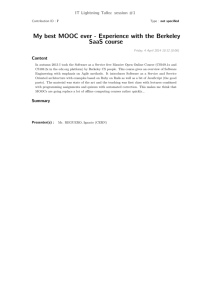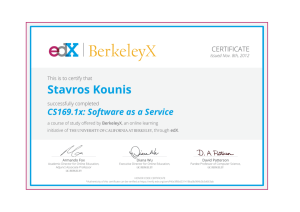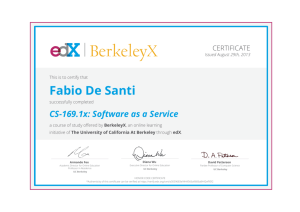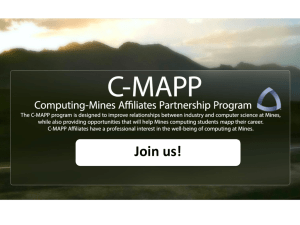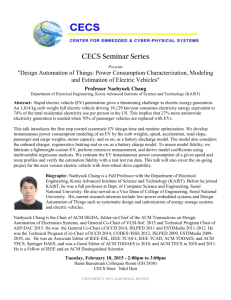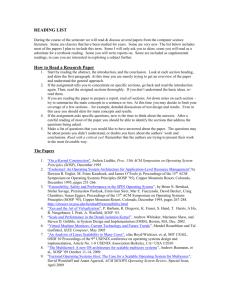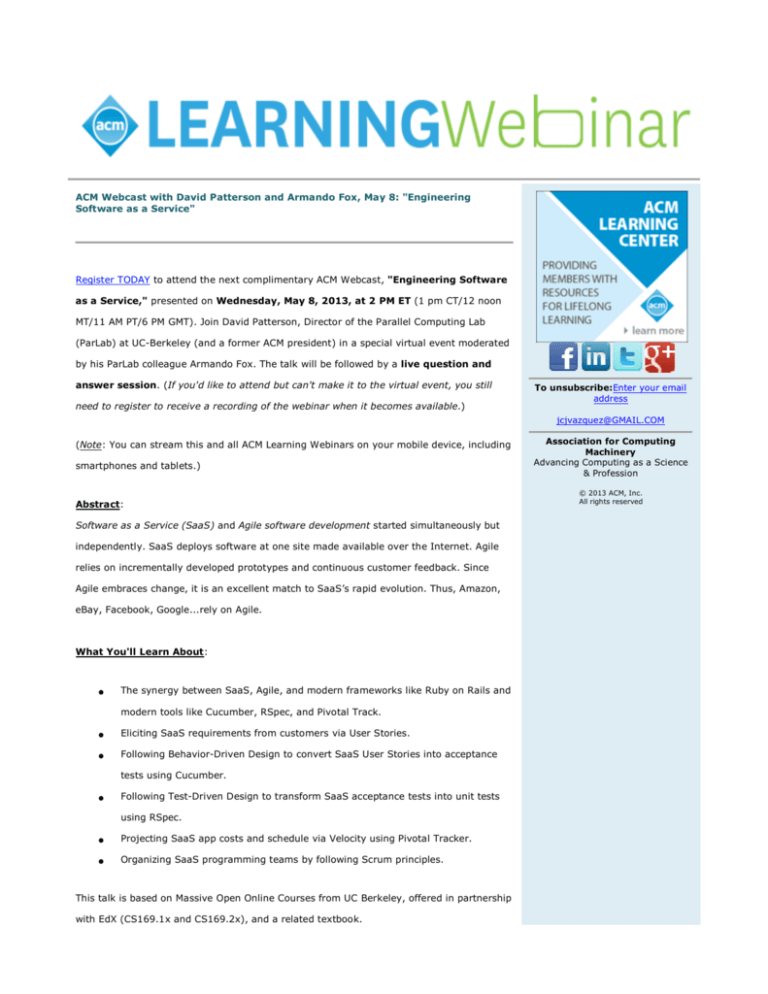
ACM Webcast with David Patterson and Armando Fox, May 8: "Engineering
Software as a Service"
Register TODAY to attend the next complimentary ACM Webcast, "Engineering Software
as a Service," presented on Wednesday, May 8, 2013, at 2 PM ET (1 pm CT/12 noon
MT/11 AM PT/6 PM GMT). Join David Patterson, Director of the Parallel Computing Lab
(ParLab) at UC-Berkeley (and a former ACM president) in a special virtual event moderated
by his ParLab colleague Armando Fox. The talk will be followed by a live question and
answer session. (If you'd like to attend but can't make it to the virtual event, you still
need to register to receive a recording of the webinar when it becomes available.)
To unsubscribe:Enter your email
address
jcjvazquez@GMAIL.COM
(Note: You can stream this and all ACM Learning Webinars on your mobile device, including
smartphones and tablets.)
Abstract:
Software as a Service (SaaS) and Agile software development started simultaneously but
independently. SaaS deploys software at one site made available over the Internet. Agile
relies on incrementally developed prototypes and continuous customer feedback. Since
Agile embraces change, it is an excellent match to SaaS’s rapid evolution. Thus, Amazon,
eBay, Facebook, Google...rely on Agile.
What You'll Learn About:
•
The synergy between SaaS, Agile, and modern frameworks like Ruby on Rails and
modern tools like Cucumber, RSpec, and Pivotal Track.
•
Eliciting SaaS requirements from customers via User Stories.
•
Following Behavior-Driven Design to convert SaaS User Stories into acceptance
tests using Cucumber.
•
Following Test-Driven Design to transform SaaS acceptance tests into unit tests
using RSpec.
•
Projecting SaaS app costs and schedule via Velocity using Pivotal Tracker.
•
Organizing SaaS programming teams by following Scrum principles.
This talk is based on Massive Open Online Courses from UC Berkeley, offered in partnership
with EdX (CS169.1x and CS169.2x), and a related textbook.
Association for Computing
Machinery
Advancing Computing as a Science
& Profession
© 2013 ACM, Inc.
All rights reserved
Duration: 60 minutes
Presenter:
David Patterson, University of California, Berkeley; Former President,
ACM
David Patterson is the Pardee Professor of Computer Science at UC
Berkeley and is currently Director of the Parallel Computing Lab. In the
past, he served as Chair of Berkeley's CS Division, Chair of the CRA,
and President of the ACM. His best-known research projects are Reduced Instruction Set
Computers (RISC) and Redundant Arrays of Inexpensive Disks (RAID). This research led to
6 books and 35 honors, including election to the National Academy of Engineering, the
National Academy of Sciences, and the Silicon Valley Engineering Hall of Fame as well as
being named a Fellow of the Computer History Museum, ACM, IEEE, and both AAAS
organizations. As a Californian, he does sports for fun: weekly soccer games, annual charity
bike rides and sprint triathlons, and even an occasional weight-lifting
contest.
Moderator:
Armando Fox, University of California, Berkeley
Armando Fox is Professor in Residence at UC Berkeley and a researcher
in the Berkeley ParLab (Parallel Computing Lab) working on highproductivity parallel programming. During his previous time at
Stanford, he received teaching and mentoring awards from the Associated Students of
Stanford University, the Society of Women Engineers, and Tau Beta Pi Engineering Honor
Society. He was named one of the "Scientific American 50" in 2003 and is the recipient of
an NSF CAREER award and the Gilbreth Lectureship of the National Academy of
Engineering. In previous lives he helped design the Intel Pentium Pro microprocessor and
founded a successful startup to commercialize his UC Berkeley dissertation research on
mobile computing. He received his other degrees in electrical engineering and computer
science from MIT and the University of Illinois and is an ACM Distinguished Member.
Click here to register for this free webcast, part of the ACM Learning Webinar series, and be
sure to share this with friends and colleagues who may be interested in this topic. And
check out our past events, all available on demand.

